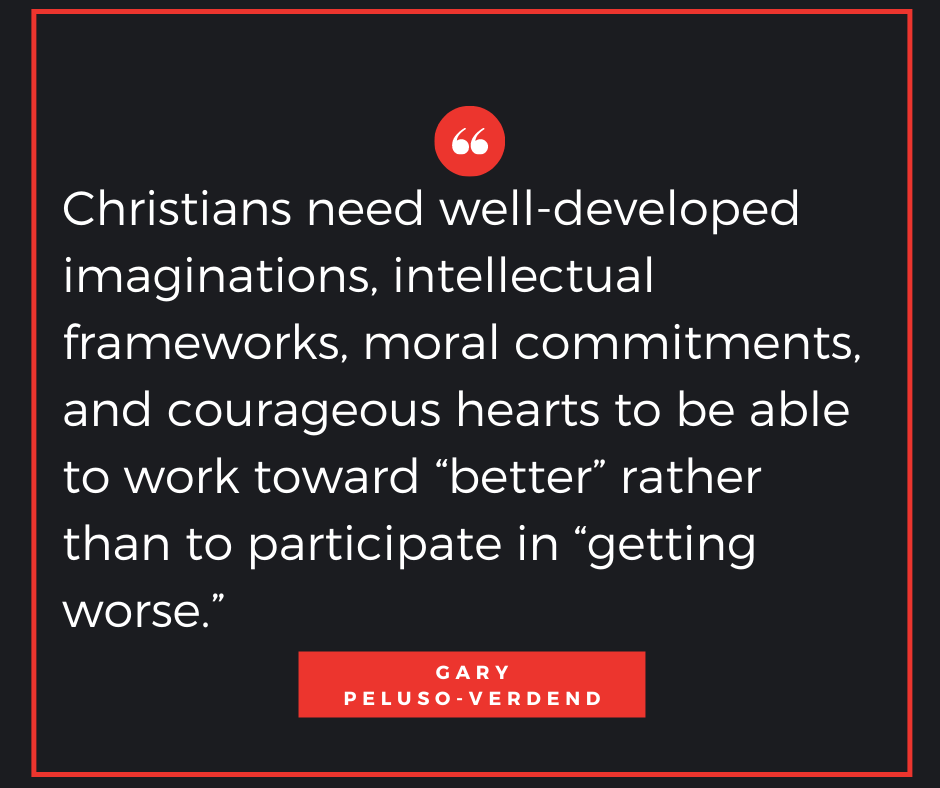Jesus Deserves to be Served by an Educated Church
“Because I hope Christians will have something intelligent and helpful to say and do.”
That is the fundamental reason I write this blog. Furthermore, that is fundamentally why I took a path into theological education 35 years ago. I am not claiming the thoughts I commit in public themselves are the intelligent saying and doing the church needs. But I want to create an open invitation to be “in” on that conversation.
I love the paraphrase of the saying regarding generals and war: theology is too important to be left only to theologians.
A powerful truth: there are many times the number of laity as there are clergy. Laity are doing their work, for the most part, outside the walls of churches. Laity are the ones engaged in legislating, healing, teaching, banking, soldiering, investing, drilling, cleaning, serving, machining, trucking, plumbing, building, accounting, policing, farming and so many other occupations. Laity are the ones perceiving, working in, and changing the world—for better and for worse.
Laity cannot do their work with mature moral, ethical, and spiritually informed abilities equipped only with a 12-year old’s confirmation education. They need challenging adult formational and transformational education.
Here are just a few of the world-changing “make it better or make it worse” dilemmas in which we live today:
- The captivity of all sectors of society by partisan, polarized, politicized thinking is killing all of us. If we play out the current end game(s) of the polarizers, heaven help us all. It is going to take an extraordinary effort for peoples of faith to free up their language and practices from the evil of partisanship. An extraordinary effort.
- Humankind is rendering this rare planetary jewel unfit for a large proportion of humankind. Christians should be importuning industry and government to act decisively now. Switching to sustainable disposables in the church kitchen is a fine step but is not enough.
- The lawyer’s question to Jesus, “Who is my neighbor?,” and Jesus’ re-formulation of his question, “Who proved to be neighbor?,” are both life-and-death questions for our time. Polarization has re-directed and restricted who we think we owe anything to. Globalization has both weakened national borders and created crises in many border zones. We need robust, principled and pragmatic conversations, policies, and practices that address Jesus’ questions.
- No reputable scientist today would say that “race” is a biological reality. Race is a cultural construct. Hierarchies of race and color are untrue, unfair, and unjust. Homo sapiens is one race. How will this nation, or any nation, disempower structural racism, so deeply embedded in collective and individual imagination, in policies and practices, in monuments and money? On balance, will churches uphold the old order or work in the forefront of the new?
- There is a battle being waged for the soul of America. Will we re-emerge as a white people’s haven, close borders, suppress critical thinking from all disciplines, disenfranchise everyone the ruling party judges is unfit to vote, and continue to use the land’s resources like colonist-extractors and colonist settlers? Or will we embrace our reality of being the most population-diverse experiment in democracy the world has seen? We will become a nation that tells an honest history, reckons redemptively with our past, and resolves together to take bold action for the sake of a better America and a better world—including the increased chances of long-term human survival and flourishing? Christians could play an important, perhaps decisive, role in this redemptive work. And we might not.
When one’s garden is not doing well, when fruits and vegetables one hopes to enjoy are not developing right, check the soil. Is the soil healthy and alive? Analogously, if we are not getting the fruits in church and society we need and expect, check the culture’s soil. What does it have, what does it need? Which toxins should be removed? What kind of life-giving agents should be added?
 Christians need well-developed imaginations, intellectual frameworks, moral commitments, and courageous hearts to be able to work toward “better” rather than to participate in “getting worse.”
Christians need well-developed imaginations, intellectual frameworks, moral commitments, and courageous hearts to be able to work toward “better” rather than to participate in “getting worse.”
Therefore, in my small way, through this blog (as well as through podcasts and the free, online classes I teach), I take the perspectives I’ve been privileged to learn through graduate theological education and share them.
Denominations did not start seminaries to educate clergy. Educating clergy was the means. The church should not be a meritocracy with the clergy on top. The end is a more educated church. We clergy are educated in order to be educators. The end must be a more educated church.
The laity, in partnership with God, have daunting and life-giving work to do. You need an education fitting for the work.
Dr. Gary Peluso-Verdend is president emeritus at Phillips Theological Seminary and is the executive director of the seminary’s Center for Religion in Public Life. The opinions expressed in this blog are those of the author. Learn more about the Center’s work here and about Gary here.


Comments are closed.